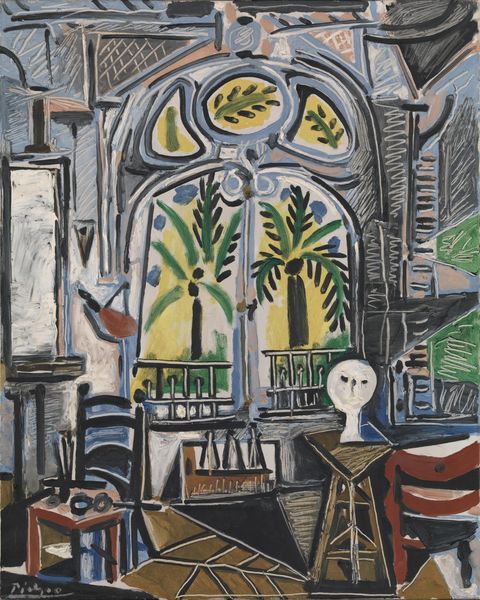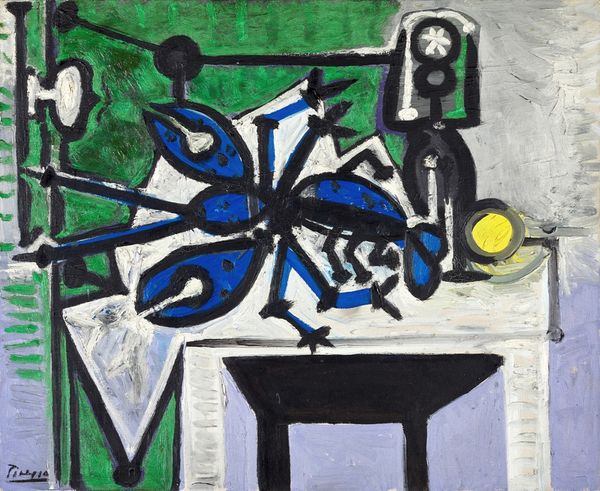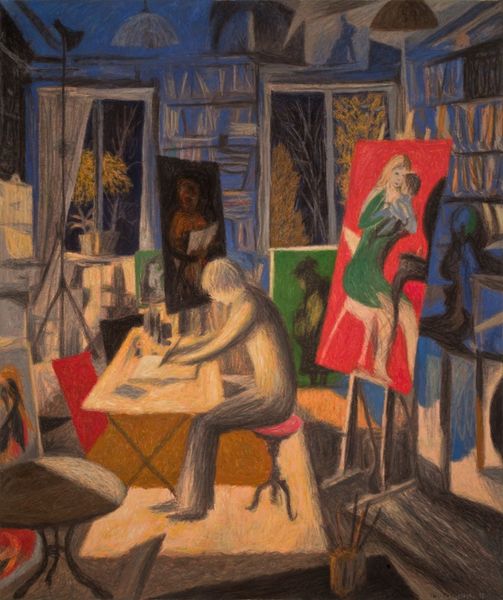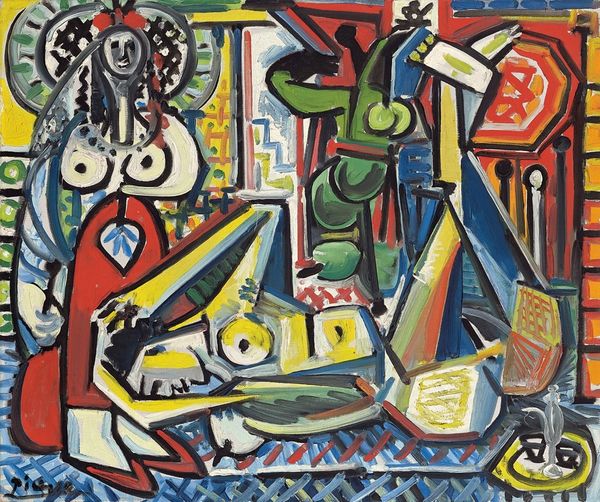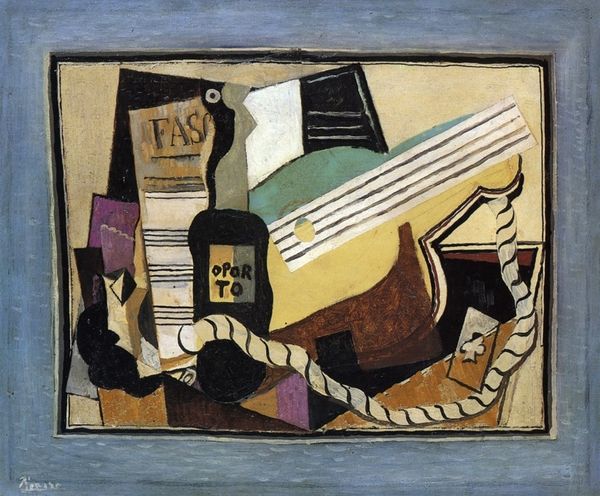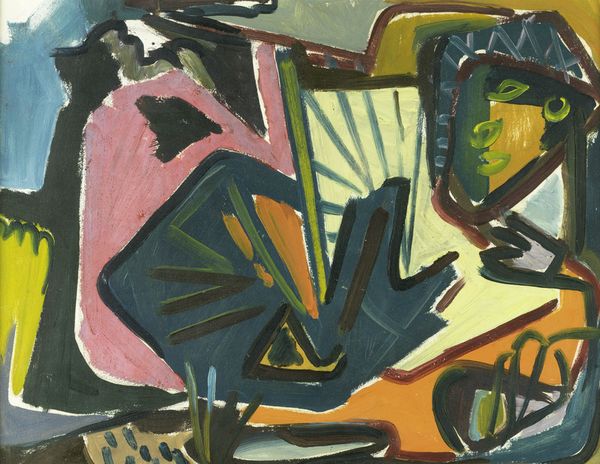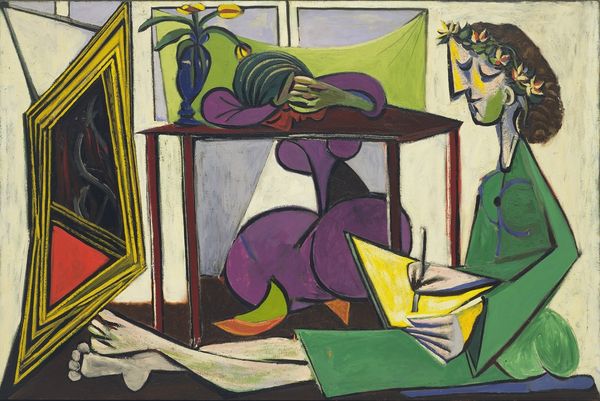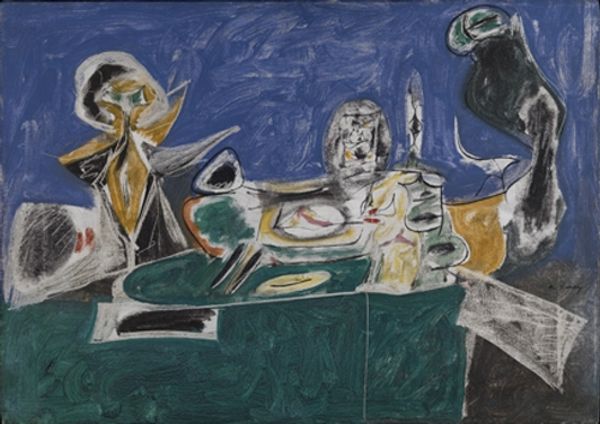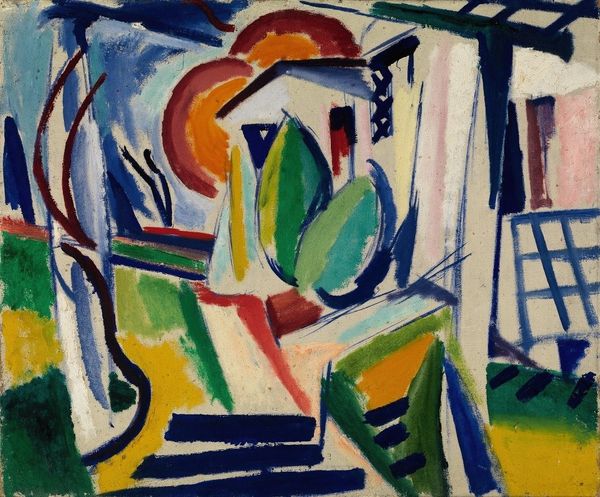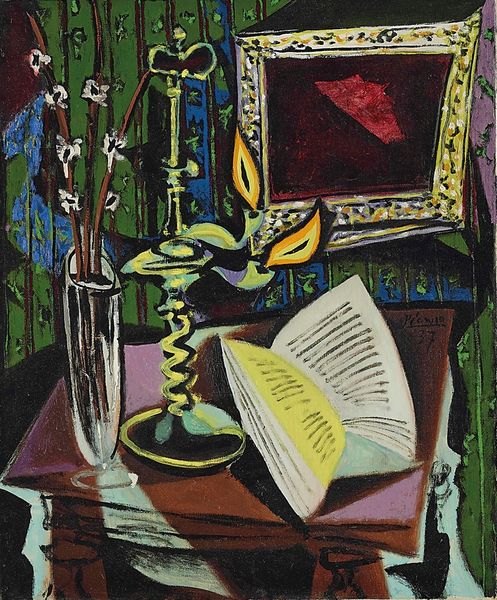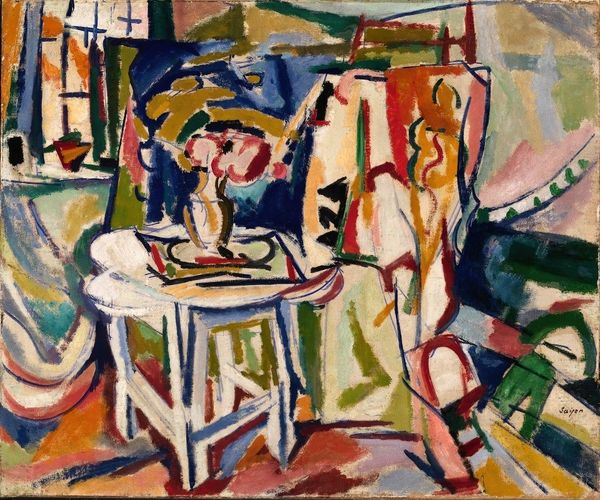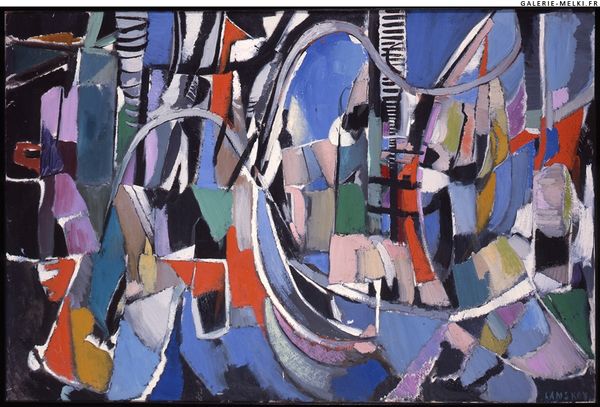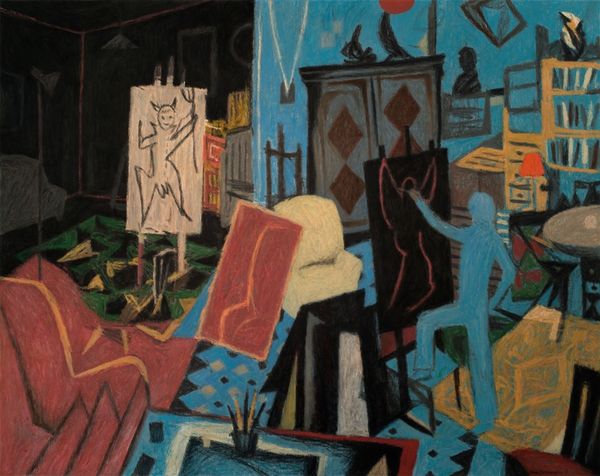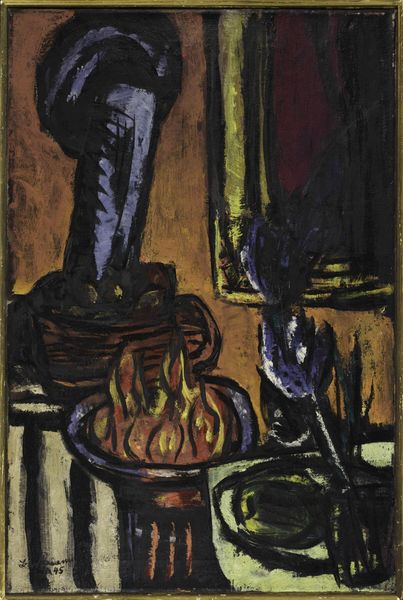
Dimensions: 101.5 x 127.0 cm
Copyright: Public Domain
Editor: This is "Backstage," painted by Max Beckmann in 1950, using oil on canvas. There's a chaotic energy here. It feels like a snapshot of something frenzied, almost claustrophobic with all these objects and colours vying for space. What do you see in this piece, beyond just a cluttered room? Curator: The "clutter," as you call it, is key. Beckmann, as a German Expressionist, lived through immense societal upheaval. This "Backstage," painted after he emigrated to the US, reflects a tension between the old world and the new, between personal history and the disorienting present. Notice how the objects are rendered—distorted, almost grotesque. Does that suggest anything to you about the artist's state of mind? Editor: It definitely adds to the feeling of unease. The objects aren't just *there*; they're imposing, almost threatening. It makes me think about the psychological impact of displacement. Curator: Precisely! Consider the figures implied in the painting: the fragmented statues, the suggestion of performers. Beckmann often used the stage as a metaphor for the world, and its inherent artifice. Here, "Backstage" reveals that artificiality and, perhaps, the anxieties of performing a new identity in a new land, while haunted by the ghosts of Europe. Where do you see that tension most acutely? Editor: Maybe in the contrast between the vibrant colors and the dark, heavy lines outlining everything. It's like trying to appear bright and cheerful on the surface, while a darker reality presses in. Curator: Exactly. The bright colors, perhaps symbolic of American optimism, are undermined by those harsh lines – a persistent reminder of his experiences during and after the war. By using figuration, it challenges viewers to grapple with its many layers of sociopolitical reality of that period. Editor: I hadn't considered the specifically transatlantic context, but that really opens up the reading of the painting. Thanks! Curator: My pleasure. By contextualizing the painting within its historical milieu, you begin to recognize just how salient "Backstage" remains for today.
Comments
stadelmuseum about 2 years ago
⋮
The curtain has fallen for good. A look behind the scenes reveals an unreal, stage-like space of great depth. Numerous exits lead into an indeterminate darkness. Crown, sword, spear and rings – familiar quotations from the artist’s pictorial world – are in an apparently arbitrary jumble. It is Beckmann’s last painting, the one he was still working on the day before his death in New York: a metaphor for the stage of life from which the painter has withdrawn. All is quiet, not a soul is to be seen, the candle has gone out, the props have been set down forever.
Join the conversation
Join millions of artists and users on Artera today and experience the ultimate creative platform.
